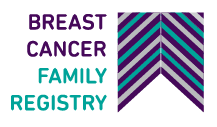Research
This is partial listing of some of the ongoing research using the resources of the Metropolitan New York Registry.
 A study by Dr. Heather Greenlee and other colleagues published in July 2006 in the Journal of Breast Cancer Research and Treatment suggests that women with specific genetic markers may be at increased risk for developing breast cancer based on how their bodies create and use estrogen – a key female sex hormone. This pilot study used urine and blood samples donated by women participating in our NY Registry. Blood samples were analyzed for genetic markers related to estrogen production and metabolism. Urine samples were analyzed for specific estrogen metabolites 2-hydroxyestrogen and 16a-hydroxyestrone. 16a-hydroxyestrone metabolites are thought to be more likely to stimulate the growth of cancer than 2-hydroxyestrogens. Our study results showed that women with specific genetic polymorphisms had different levels of 2-hydroxyestrogen and 16a-hydroxyestrone metabolites in their urine compared to women without these genetic markers. Future genetic studies of markers that influence estrogen production and metabolism may help identify women at higher risk who may benefit from new avenues for breast cancer prevention.
A study by Dr. Heather Greenlee and other colleagues published in July 2006 in the Journal of Breast Cancer Research and Treatment suggests that women with specific genetic markers may be at increased risk for developing breast cancer based on how their bodies create and use estrogen – a key female sex hormone. This pilot study used urine and blood samples donated by women participating in our NY Registry. Blood samples were analyzed for genetic markers related to estrogen production and metabolism. Urine samples were analyzed for specific estrogen metabolites 2-hydroxyestrogen and 16a-hydroxyestrone. 16a-hydroxyestrone metabolites are thought to be more likely to stimulate the growth of cancer than 2-hydroxyestrogens. Our study results showed that women with specific genetic polymorphisms had different levels of 2-hydroxyestrogen and 16a-hydroxyestrone metabolites in their urine compared to women without these genetic markers. Future genetic studies of markers that influence estrogen production and metabolism may help identify women at higher risk who may benefit from new avenues for breast cancer prevention.
Dr. Mary Beth Terry and colleagues have recently completed several studies examining the role of alcohol on breast cancer risk. Using information from the Long Island Breast Cancer Study, she found that women who were faster metabolizers of alcohol had a higher risk of breast cancer than those that did not. She recently completed a study within the Breast Cancer Registry which did not find an increase risk of breast cancer among consumers of alcohol whether or not they were fast metabolizers. In a related study, Dr. Terry joined other Registry researchers to examine whether young women less than age 50 who were found to have a BRCA1 or BRCA2 mutation were at greater breast cancer risk from alcohol. More than 300 women with breast cancer were compared with almost 500 women who remained free of disease. Compared with non-drinkers, no increased risk was found associated with alcohol intake after considering the frequency of use and the quantity of alcohol consumed.
Dr. Habib Ahsan is studying the link between differences in metabolism of estrogens and the risk of breast cancer among paired relatives. Although mother-daughter pairs and paired sisters share many of the same genes, some small differences in their genetic make-up are known to occur. Dr. Ahsan is studying several estrogen metabolizing genes, reproductive history and estrogen use in more than 400 paired first degree relatives participating in the Metropolitan NY Registry. Blood samples from relatives with and without breast cancer are required for this investigation.


